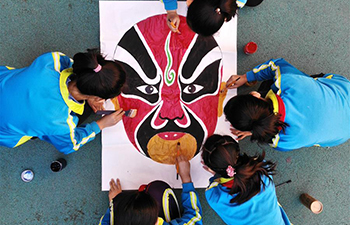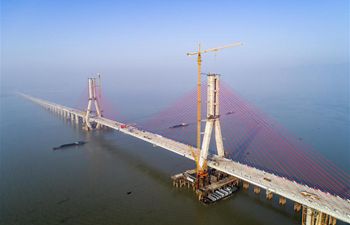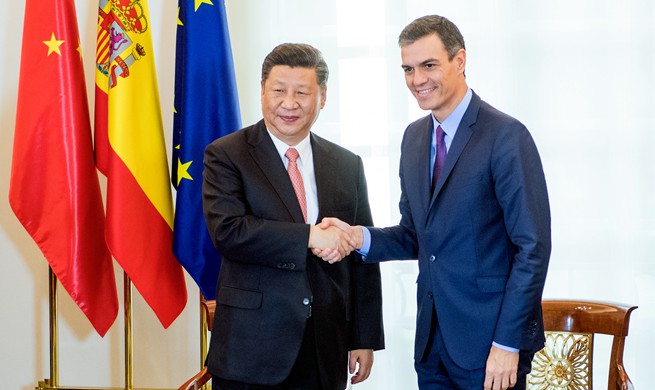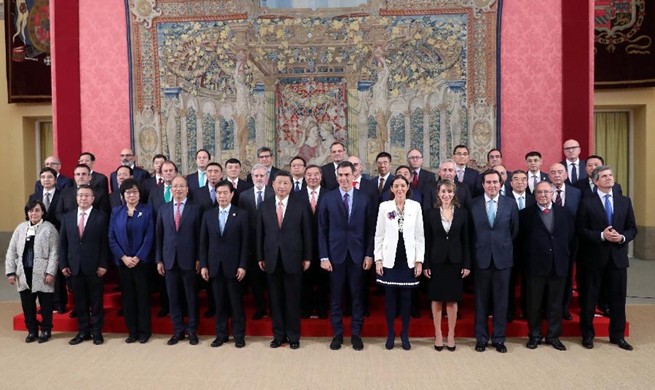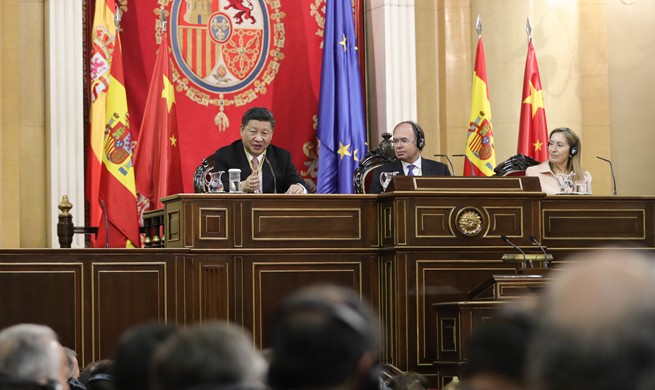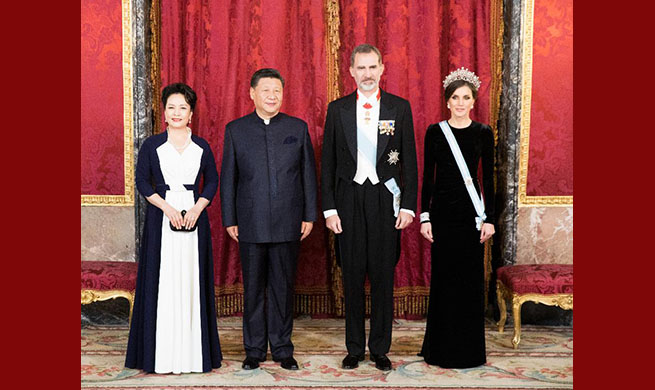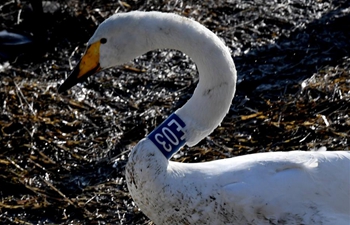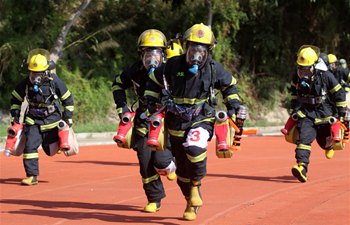DAMASCUS, Nov. 29 (Xinhua) -- As expected, the 11th round of peace talks on Syria in Astana did not achieve a breakthrough in the two hot topics, forming constitutional committee and demilitarized zone violations, in the more than seven-year war in Syria.
The talks kicked off on Wednesday and closed on Thursday in the Kazakh capital of Astana, but the pro-government al-Watan newspaper cited sources as saying no major progress was made during the talks regarding the situation in Idlib or the constitutional committee.
However, a notable fruit of the talks was probably a sort of agreement that Russia would act against the extremist groups which have been undermining the deal since it went into force in October.
The Hayat Tahrir al-Sham, the umbrella group of the al-Qaida-linked Nusra Front, is a major militia in Idlib, and, alongside allied militias, it controls 70 percent of the demilitarized zone.
The deal demanded the withdrawal of heavy weapons from the zone as well as the radical fighters. Some of the weaponry was pulled out but the ultra-radical rebels refused to leave as planned.
On the contrary, those rebels have staged several attacks on Syrian military posts in the northwestern countryside of Hama Province near Idlib and most recently they were behind a suspected chemical attack in the northern city of Aleppo.
The Syrian official media outlets said the rebels in the countryside of Aleppo fired projectiles filled with chlorine gas on residential areas in Aleppo on Saturday, leading to the suffocation of 107 civilians.
The Russian allies of the Syrian government were said to have struck the areas from which the suspected chemical attack was launched, killing all rebels responsible for the attack, according to the al-Watan newspaper.
During a press conference on the sidelines of the Astana talks on Wednesday, Alexander Lavrentiev, Russian presidential envoy for Syria, said Moscow is ready to provide all help to restore stability to Idlib, which holds around 15,000 al-Qaida-linked rebels.
Lavrentiev even said his country is ready to support the moderate rebels in their fight to eliminate the al-Qaida-linked Nusra Front and like-minded groups.
Despite no decisive agreement about the demilitarized zone in Idlib, "an agreement was reached that Russia will respond to any military operation carried by the rebels," al-Watan cited sources as saying.
At a press conference on Thursday at the end of the talks, Lavrentiev said the formation of the constitutional committee was "so close" after this round of talks.
"We are so close to having this work done," he noted.
The ultra-radical rebels in the demilitarized zone were said to have been amassing forces and deploying missiles as part of the preparation for a confrontation with the Syrian army despite the deal.
The UN Envoy to Syria Staffan de Mistura, who is leaving his post by the end of the next month, also lamented the lack of tangible progress regarding the formation of the constitutional committee, an impasse which has been dragging on since 10 months ago.
Under the Sochi agreement reached in January, the constitutional committee should be composed of representatives of the Syrian government, the opposition and civil society representatives, each with 50 members.
However, the Syrian government seems to have been opposed to the third category.
In his briefing to the UN Security Council last month, de Mistura said Damascus did not want the United Nations to have a role to play in the formation of the constitutional committee despite the agreement in Russia's resort city of Sochi in January.
In Syria, the government has made it clear that the constitution is a sovereign matter that should be discussed among Syrians without foreign interference.





